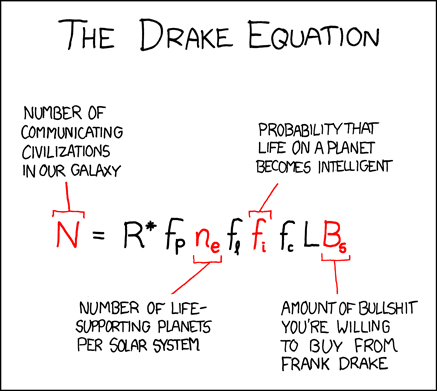Are there things alive out there? Without a doubt - of course.
Are there something like "other people" out there that we can communicate with? I wouldn't count on it.
Are there something like "other people" out there that we can communicate with? I wouldn't count on it.





